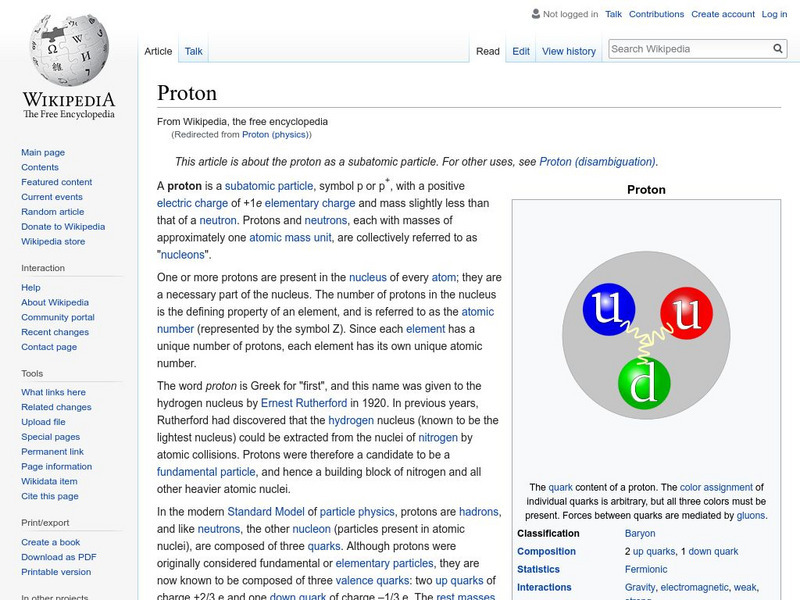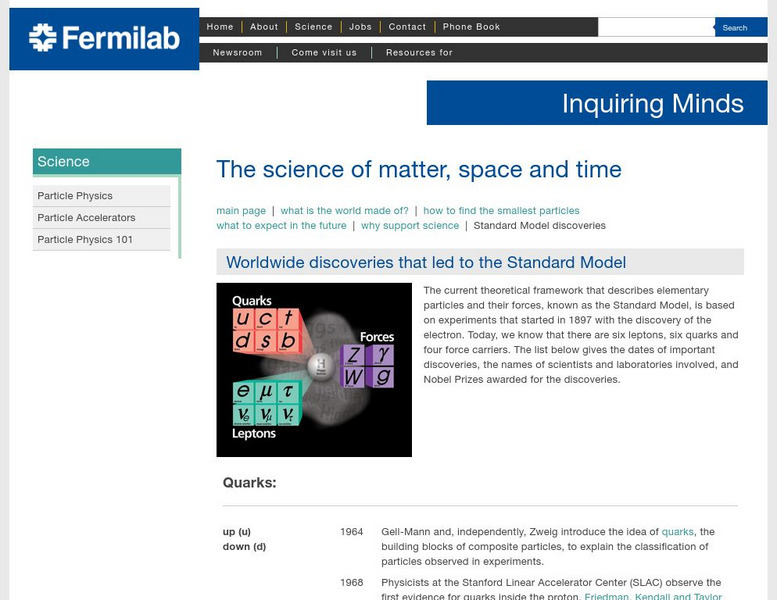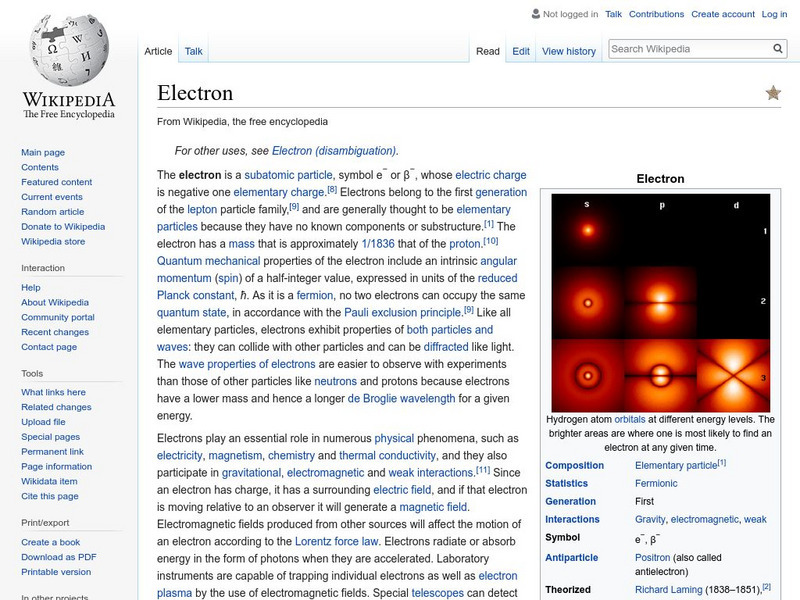Chapman University
The Standard Model Poster
Chemistry classes will appreciate this color-coded, single-page reference sheet for The Standard Model of particle physics. It is divided into two main sections: elementary particles and compound particles, both with their antiparticles....
American Museum of Natural History
American Museum of Natural History: Case Study: Neutrino Observatories
Observatories allow for study of subatomic particles, neutrinos, which are found nearly everywhere in the universe are featured in this case presented by the American Museum of Natural History.
Frostburg State University
General Chemistry Online: Atoms, Elements, and Ions Faq
Get the skinny on all things frequently asked about isotopes, subatomic particles and atomic theory. Find out what a "dalton" is or the difference between Na+ and Na.
Wikimedia
Wikipedia: Proton
Wikipedia offers information on the proton, a subatomic particle with a positive electric charge. Many hyperlinked terms.
National High Magnetic Field Laboratory
Magnet Academy: Murray Gell Mann
Murray Gell-Mann is a theoretical physicist who won the Nobel Prize for Physics in 1969 for his contributions to elementary particle physics. He is particularly well known for his role in bringing organization into the world of subatomic...
Physics4kids
Physics4 Kids: Modern Physics: Looking Into Atoms
Get an inside look the subatomic particles of atoms.
University of Cambridge
University of Cambridge: Physics: The Neutron
This site provides a great series on the neutron discovered by James Chadwick. Includes a seven-page series that covers what is inside the nucleus, the elusive neutron, beryllium radiation, Chadwick's discovery, neutrons from beryllium,...
Symmetry Magazine
Symmetry Magazine: Explain It in 60 Seconds: The Intensity Frontier
This article briefly describes the Intensity Frontier, one of several research approaches to the area of particle physics.
Other
Fermilab: Worldwide Discoveries That Led to the Standard Model
A thorough review of subatomic particles and the people that discovered them. Each particle has its own link for additional information.
National High Magnetic Field Laboratory
Magnet Academy: Timeline of Electricity and Magnetism: 1960 1979
Computers evolve into PCs, researchers discover one new subatomic particle after another and the space age gives our psyches and science a new context.
BiologyWise
Biology Wise: Levels of Biological Organization
Describes the levels of organization in biology, from the subatomic particle up to the biosphere.
Symmetry Magazine
Symmetry Magazine: Explain It in 60 Seconds: The Terascale
The terascale, described in this article, is a subatomic region that requires enormous amounts of energy in order to reach it. Scientists hope to be able to study it with the Large Hadron Collider. "Explain It In 60 Seconds" is an...
Science Struck
Science Struck: What Makes Up an Atom?
Describes the structure of an atom and the characteristics of the electrons, neutrons, and protons inside it. Includes some interesting facts about atoms.
Wikimedia
Wikipedia: Electron
At this Wikipedia site, properties and characteristics of electrons are discussed in this brief overview of them.








